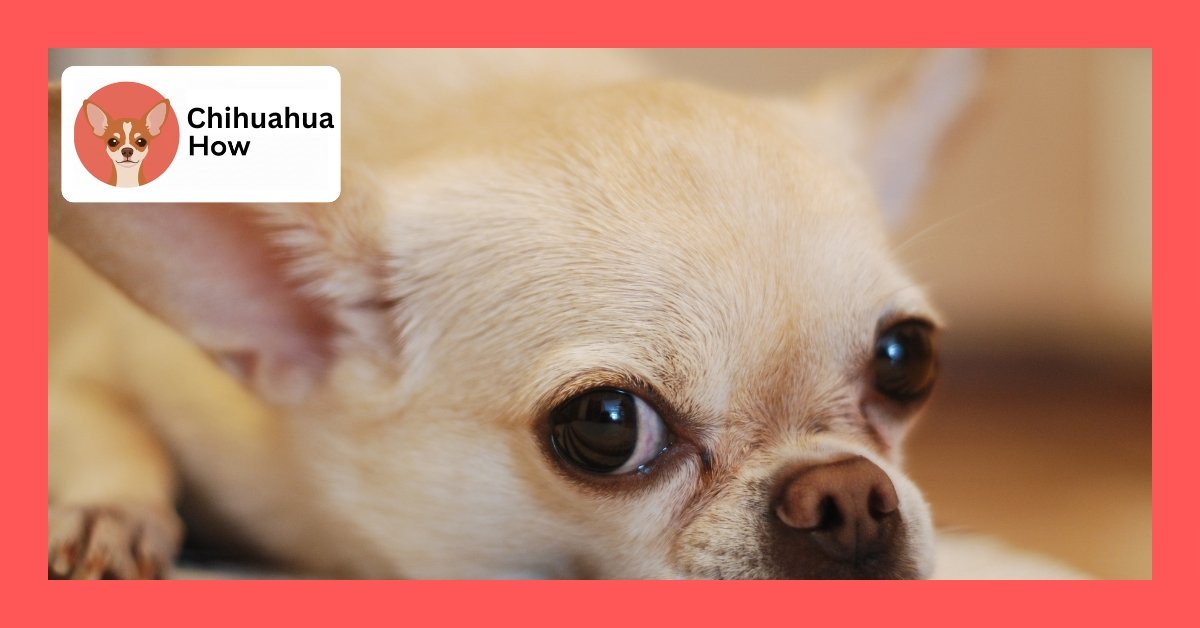Picture this: a tiny 4-pound Chihuahua barking ferociously at a 150-pound Great Dane, showing no fear whatsoever. This scene plays out in dog parks and neighborhoods worldwide, leaving many owners wondering about their small dog’s bold behavior.
Are Chihuahuas aggressive to other dogs? Research shows that Chihuahuas do exhibit higher rates of aggressive behavior toward other dogs compared to larger breeds, primarily due to territorial instincts, fear-based responses, and inadequate socialization rather than inherent aggression.
Understanding the root causes of this behavior is crucial for creating harmonious multi-dog households and ensuring safe interactions in public spaces. According to recent studies published in Nature Scientific Reports, small dog breeds including Chihuahuas show statistically significant higher aggression rates when environmental factors are controlled.
Understanding Chihuahua Behavior Toward Other Dogs
Chihuahuas demonstrate unique behavioral patterns that often manifest as aggression toward other dogs. These behaviors stem from a complex combination of biological, environmental, and social factors.
Common Aggressive Behaviors in Chihuahuas
When encountering other dogs, Chihuahuas typically display several warning signs and aggressive behaviors:
- Reactive barking – High-pitched, continuous vocalizations directed at approaching dogs
- Lunging and snapping – Sudden forward movements with attempts to bite or nip
- Resource guarding – Protecting toys, food, or their owner from other dogs
- Territorial displays – Blocking pathways or positioning themselves between their owner and other dogs
- Fear-based aggression – Aggressive responses when feeling cornered or overwhelmed
The Science Behind Small Dog Aggression
Recent research reveals fascinating insights about size-related aggression patterns. A comprehensive study analyzing over 9,000 dogs found that body size correlates directly with aggressive tendencies.
Smaller breeds like Chihuahuas score higher on aggression scales due to evolutionary survival mechanisms. Their ancestors relied on bold, defensive behaviors to compensate for physical disadvantages against larger threats.
Factors Contributing to Chihuahua Aggression
Multiple variables influence whether a Chihuahua will display aggressive behavior toward other dogs. Understanding these factors helps owners address root causes effectively.
Environmental and Demographic Influences
Recent 2024 studies highlight several key risk factors that increase aggression likelihood:
| Risk Factor | Impact Level | Explanation |
|---|---|---|
| Single-dog household | High | Limited socialization opportunities |
| First-time owner | Medium-High | Inexperience with behavior management |
| Male gender | Medium | Slightly higher territorial tendencies |
| Increasing age | Medium | Reduced adaptability to new situations |
| High fearfulness | High | Fear-based defensive responses |
Inadequate Socialization
Poor early socialization represents the most significant contributor to dog-directed aggression in Chihuahuas. Dogs not exposed to other canines during their critical socialization period (3-14 weeks) often develop fear-based aggressive responses.
This lack of exposure creates a cycle where fearful reactions lead to negative experiences, reinforcing aggressive behaviors over time. For households considering adding another pet, understanding proper introduction techniques is essential – particularly when considering how Chihuahuas interact with cats, as similar socialization principles apply.
How to Prevent and Manage Chihuahua Aggression
Effective aggression management requires consistent, evidence-based approaches that address both prevention and intervention strategies.
Early Socialization Protocol
Follow this step-by-step socialization process for optimal results:
- Start early – Begin controlled exposures between 8-16 weeks of age
- Choose calm dogs – Introduce your Chihuahua to well-socialized, gentle dogs first
- Control the environment – Use neutral territories and maintain adequate space
- Reward calm behavior – Provide high-value treats for peaceful interactions
- Keep sessions short – Limit initial meetings to 5-10 minutes to prevent overwhelm
- Monitor body language – Watch for stress signals and end sessions before escalation
- Gradually increase exposure – Slowly extend duration and add new dogs over time
Training Techniques for Aggressive Chihuahuas
Professional trainers recommend specific strategies tailored to small breed challenges. Focus on positive reinforcement methods that build confidence while establishing clear boundaries.
Counter-conditioning techniques help change emotional responses from fear or aggression to calm acceptance. This process requires patience and consistency but produces lasting behavioral improvements. Building your Chihuahua’s confidence through structured training activities like scent work can significantly reduce anxiety-based aggression by providing mental stimulation and positive experiences.
When to Seek Professional Help
Certain situations require immediate professional intervention from certified dog behaviorists or veterinary behaviorists.
Warning Signs Requiring Expert Assistance
- Escalating aggression despite consistent training efforts
- Bite incidents resulting in puncture wounds
- Generalized fear affecting multiple aspects of daily life
- Aggressive episodes triggered by minimal stimuli
Early intervention prevents behavior problems from becoming deeply ingrained patterns that are more difficult to modify later.
Debunking Common Myths About Chihuahua Aggression
Several misconceptions persist about Chihuahua behavior that can actually worsen aggression problems when owners act on incorrect assumptions.
Myth vs. Reality
Myth: Chihuahuas are naturally mean dogs that cannot be trained.
Reality: Research demonstrates that Chihuahuas respond excellently to consistent, positive training methods. Their apparent aggression often masks underlying anxiety or inadequate social learning rather than inherent hostility.
Myth: Small dogs do not need the same training as large dogs.
Reality: Size does not exempt any dog from requiring proper socialization, training, and behavioral management. Small dogs benefit equally from structured learning experiences.
Creating Successful Multi-Dog Households
Many Chihuahuas live peacefully with other dogs when proper introduction protocols and ongoing management strategies are implemented.
Introduction Best Practices
Successful multi-dog integration requires careful planning and gradual progression. Never force interactions or assume dogs will naturally accept each other without proper preparation.
Monitor initial interactions closely, maintaining physical separation until both dogs demonstrate calm, relaxed body language consistently. This process may take weeks or months depending on individual personalities and previous experiences.
Understanding that Chihuahuas can be aggressive to other dogs helps owners take appropriate precautions while working toward peaceful coexistence. With proper management, most Chihuahuas can learn to accept and even enjoy the company of other dogs.
Frequently Asked Questions
Why are Chihuahuas so aggressive toward bigger dogs?
Chihuahuas display aggression toward larger dogs primarily due to fear-based defensive responses and territorial instincts. Their small size triggers survival mechanisms that manifest as bold, aggressive displays to deter potential threats. Inadequate socialization during puppyhood often compounds these natural tendencies.
Can Chihuahua aggression be completely eliminated?
While aggressive tendencies can be significantly reduced through proper training and socialization, complete elimination depends on individual factors like genetics, early experiences, and consistency of management. Most Chihuahuas can learn appropriate social behaviors with dedicated effort from their owners.
Are male or female Chihuahuas more aggressive to other dogs?
Research indicates that male Chihuahuas show slightly higher rates of dog-directed aggression compared to females. However, individual personality, socialization history, and environmental factors play more significant roles than gender in determining aggressive behavior patterns.
At what age do Chihuahuas become aggressive toward other dogs?
Chihuahua aggression toward other dogs can emerge as early as 4-6 months of age, coinciding with adolescent development phases. However, dogs can develop aggressive behaviors at any age, particularly following negative experiences or during periods of inadequate socialization.
How long does it take to train a Chihuahua to be less aggressive?
Training duration varies widely based on the severity of aggression, the dog’s age, and consistency of training efforts. Mild cases may show improvement within 4-8 weeks, while more severe aggression can require 6-12 months of dedicated behavior modification work.
Should I avoid dog parks with my aggressive Chihuahua?
Yes, dog parks should be avoided until your Chihuahua demonstrates reliable calm behavior around other dogs in controlled settings. Unstructured environments with multiple unknown dogs can overwhelm reactive Chihuahuas and potentially worsen aggressive responses through negative experiences.
Can professional training help aggressive Chihuahuas?
Professional training is highly effective for managing Chihuahua aggression when conducted by certified positive reinforcement trainers or veterinary behaviorists. Expert guidance provides customized strategies addressing specific triggers while teaching both dogs and owners appropriate interaction protocols for long-term success.

